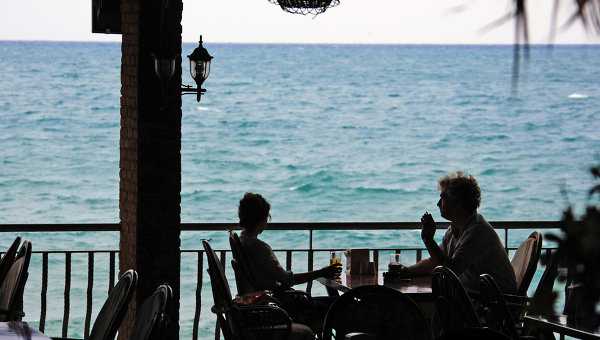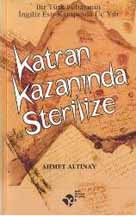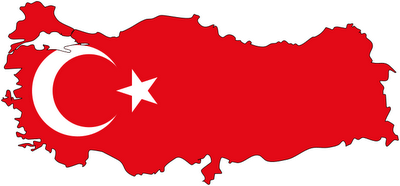By Robert Dreyfuss | Wed September 9, 2009 2:13 PM PST Editors’ Note: Next Sunday’s New York Times Magazine has a feature on “The New Israel Lobby,” the liberal pro-Israel group J Street. Bob Dreyfuss’ story in the Mother Jones issue that hit the streets a few weeks ago also focuses on the shifting terrain for the Israel lobby.
AS TWO MEN AT THE PODIUM called out names in rapid succession, senators and members of Congress rose from their candlelit tables to acknowledge the cheers of 7,000 pro-Israel activists gathered to fete them. The scene was the vast Washington Convention Center; the occasion, the gala banquet capping the annual three-day conference of Washington’s most powerful lobbying group, the American Israel Public Affairs Committee. With more than half of Congress attending, and America’s top politicians fumbling to score crowd points with awkwardly delivered Hebrew phrases and fulminations concerning Iran, the reading of the names has become a yearly demonstration of AIPAC’s clout. Banquet speakers included Joe Biden, Newt Gingrich, and John Kerry, looming on gigantic screens that lined the hall. Representing Israel were President Shimon Peres (whose address was interrupted by a half-dozen Code Pink activists) and, via satellite link, Prime Minister Benjamin Netanyahu. It was a dog and pony show no other group-not the American Medical Association, not the National Rifle Association, not AARP-could hope to match.
For decades, AIPAC-together with Washington’s broader Israel lobby, which distributed more than $22 million in campaign contributions during the last election cycle-has had a well-earned reputation for getting what it wants. And many expected the same when, during the May conference, thousands of AIPAC foot soldiers fanned across Capitol Hill to talk up the Iran Refined Petroleum Sanctions Act, a bill designed to throttle Iran’s economy by restricting its ability to import gasoline (which it doesn’t have much capacity to produce domestically). The legislation is a top priority for AIPAC, which views Iran’s nuclear enrichment push as an existential threat to the Jewish state.
But this time, AIPAC was in for a surprise. Rep. Howard Berman, a dependable Israel backer who authored the legislation this past spring, put it on ice just weeks after it was introduced. “I have no intention of moving this bill through the legislative process in the near future,” declared the California Democrat, who chairs the powerful House Committee on Foreign Affairs.
“Berman shocked everybody by not moving this bill forward,” an official from the Israel lobby told me. “He’s essentially put the kibosh on the bill. On his own bill! This is a major, major, major problem.”
So what happened? The first explanation is obvious: Like many Democrats, Berman is reluctant to stand in the way of President Obama’s foreign policy objectives, including his overture to Iran and his push for US leadership toward an Israeli-Palestinian accord. But Berman’s action also signaled a deterioration of AIPAC’s power. It’s begun to appear that “AIPAC is not the 800-pound gorilla everyone says they are,” says Dan Fleshler, author of Transforming America’s Israel Lobby. “They may be just a 400-pound gorilla.”
On Capitol Hill, a coalition of groups to the left of AIPAC has been mobilizing Democrats to support Obama’s agenda in the Middle East, even if it conflicts with the goals of AIPAC and Netanyahu. (See our graphic representation of the Israel lobby spectrum, and our who’s who of the major personalities). “Members of Congress are looking to support the president, and AIPAC hasn’t moderated itself as much as it should have,” says Patrick Disney, acting legislative director at the National Iranian American Council, which is part of the new coalition.
AIPAC is facing something of a perfect storm.
Advocating for stronger ties between the Obama administration and the current right-wing Israeli government would be a difficult chore under any circumstances; on top of that,
the megalobby has been weakened by a series of setbacks, including a long-running espionage drama involving two former officials accused of conspiring to pass along classified Pentagon Iran reports to Israel. Charges against the pair were dropped in May, but ripples from the scandal still tainted Rep. Jane Harman (D-Calif.), one of AIPAC’s top allies on Capitol Hill, who was caught on a wiretap by the National Security Agency promising a suspected Israeli spy that she would try to get the charges reduced.
Most of all, AIPAC and its allies face a president who is determined to press both Israel and the Palestinians for a deal. He’s demanded that Israel halt its expansion of settlements in the West Bank, and in June, alarm bells went off in Israel when Obama, in his long-awaited Cairo speech on US-Muslim relations, expressed sympathy for the plight of the Palestinians in terms rarely used by an American president: “Let there be no doubt: The situation for the Palestinian people is intolerable.”
On the Iran issue, “there is a chance for the most serious dispute between the US and Israel in the entire 61 years of relations between the two,” Robert Satloff, executive director of the Israel lobby’s chief think tank, the Washington Institute for Near East Policy, told AIPAC in May. If Satloff is right, and Obama puts forward a Middle East peace plan that conflicts with the Israeli government’s desires, it will prove the severest test yet for AIPAC: Can a popular American president, determined to transform American policy toward West Bank settlements for the first time since 1967, roll over Washington’s most powerful lobby?
IN A SENSE, AIPAC and its allies are finding themselves hoist on their own petard. For years, the group has succeeded by gleefully aligning itself with the power of right-wing Republicans and pro-Israel evangelicals, the so-called Christian Zionists, who believe in the end-time and see a role for Israel within their own apocalyptic vision. These alliances proved a winning formula when the Newt Gingrich-led Republicans took over Congress in 1994 and, later, when President George W. Bush unquestioningly backed a series of conservative Israeli governments. But the strategy doesn’t look so good anymore. “You do pay a price for having cozied up so intimately and with such apparent relish to the right wing of the Republican Party, to the neocons, and to the Christian right,” says Daniel Levy, a senior fellow at the New America Foundation who served as a top negotiator for Israel in 1995 and 2001.
To be sure, it would be a mistake to count AIPAC out. It still has 100,000 members, a $60 million budget, and a $140 million endowment. Some 300 staffers, including an army of lobbyists, work out of 18 AIPAC offices spread across the country; they are tight with State Department and Pentagon bureaucrats, and can call on a vast network of political action committees, campaign contributors, and influentials. At its May conference-event slogan: “Relationships Matter”-AIPAC chose Lee Rosenberg, an Illinois businessman with close ties to Obama, as its next president.
Its name notwithstanding, AIPAC is not a political action committee and does not contribute money directly to political campaigns. The Center for Responsive Politics, however, identifies 31 separate PACs as “pro-Israel” donors. And while independent of AIPAC, many of these organizations look to the mother ship for guidance on which candidates to support. During the 2008 election cycle, according to an analysis conducted for Mother Jones by the center, these 31 PACs and their individual donors funneled an eye-popping $22.5 million to various candidates. As detailed in The Israel Lobby, a 2007 book by Stephen M. Walt and John J. Mearsheimer that drew withering criticism from Israel hardliners, AIPAC’s implicit-if unofficial-endorsement can open the floodgates for these contributions, especially for key candidates in tight races. Last year, Rep. Mark Kirk, a conservative Illinois Republican and AIPAC ally facing a stiff reelection challenge, raked in $407,431 from these sources.
Little surprise, then, that AIPAC is still an agenda setter on Capitol Hill. “If you’re looking for a measure of their efficacy,” notes a source close to the group, “just take a look at how many members of Congress voted in support of Israel’s right to defend themselves from Hamas this January [amid Israel’s assault on Gaza]: unanimous in the Senate, and 390-to-5 in the House.” In sync with this year’s AIPAC conference, 328 House members and three-quarters of the Senate signed the lobby group’s letters to Obama, which urged the president to take an Israel-centric approach to Middle East peace and emphasized that “the parties themselves must negotiate the details of any agreement.” The letters went on to note that “the proven best way forward is to work closely and privately together” with Israel.
Malcolm Hoenlein-who, as executive vice chairman of the Conference of Presidents of Major American Jewish Organizations, could be described as the unofficial chairman of the Israel lobby-admits that while Obama got three-quarters of the Jewish vote, many influential Jewish activists are upset with the administration’s direction. “There are people who are very worried,” he says. “I could show you how many emails I get every day, all day long, about all this stuff.”
Hoenlein doesn’t believe the growing friction between Obama and Netanyahu will lead to a head-to-head test of wills. “It’s early,” he says of Obama. “The numbers will change. His popularity will go down.” That may be true, but AIPAC and its allies face an even broader challenge: The fight over America’s Middle East policy is ratcheting up within the Israel lobby itself.
IN THE TINY, cluttered office warren occupied by the Israel Policy Forum (IPF) in downtown Washington, the group’s director of policy analysis, M.J. Rosenberg, waves at a visitor as he wraps up a phone call. Then, slouched on a sofa in shirtsleeves and stocking feet, surrounded by piles of paper, Rosenberg proceeds to blast one of AIPAC’s congressional allies, the House minority whip, for the graphic Holocaust imagery he invoked during his speech at the AIPAC convention. “I mean, Eric Cantor gets up there and talks about cattle cars and gas chambers!” Rosenberg tells me. “He’s from Virginia! Virginia! What the hell is he talking about?”
Rosenberg’s organization is one of the pillars of a growing collection of liberal, anti-war Israel policy groups that have emerged to challenge the traditional center-right Israel lobby. Among them are Americans for Peace Now, Brit Tzedek v’Shalom, and a new entry called J Street, founded last year, whose PAC has raised about $600,000 for congressional candidates who are willing to contest the Israeli government’s hardline positions.
Of course, compared to the millions of dollars AIPAC can mobilize, the new coalition is far outgunned. But Rosenberg, who worked for AIPAC during the 1980s, argues that it is a paper tiger that capitalizes on perception as much as on reality. “The lobby is kind of like the Wizard of Oz,” he explains. “Behind that curtain, there’s not very much. It’s an illusion.” On Capitol Hill, says Rosenberg, support for the group is wide, but not very deep. “They have a couple of people, Jewish members of Congress, who are AIPAC’s people on the Hill. Key, respected members-in the current Congress, for instance, Steny Hoyer and Eric Cantor. The broad majority of members look to those members for guidance: ‘Well, this guy is for the resolution; it must be okay with AIPAC, so I’m for it.’” Members reflexively follow AIPAC, says Rosenberg, because they don’t want to be hassled by the Israel lobby, and nobody else in the debate carries near the same clout.
The game changer, he says, is Obama. “I don’t believe that many members would follow AIPAC rather than the president of the United States if the president of the United States calls,” Rosenberg explains. And thanks to decades of gerrymandering, he says, many lawmakers are so secure in their districts that there’s not that much AIPAC could do to unseat them, even with its vast contributor network.
Jeremy Ben-Ami, the slight and soft-spoken executive director of J Street, says the change on Capitol Hill is palpable. More and more members of Congress see AIPAC as an obstacle to America’s crucial national interest-a durable Middle East peace deal. “Our role is to demonstrate that there is significant and meaningful political support for leadership to achieve peace,” Ben-Ami says.
In January, when Obama named former Senate Majority Leader George Mitchell as his special Middle East envoy, J Street got 104 legislators to sign a statement supporting Mitchell. (The traditional Israel lobby views Mitchell, in the words of the Anti-Defamation League’s Abraham Foxman, as a little too “even-handed.”) In May, when AIPAC’s warning letter to Obama began amassing signatures in the House-it ultimately got 328-J Street and its allies put out a competing House letter calling for strong American leadership that accumulated 86 names. “There are a number of members of Congress who are seeking out new voices on the issue,” says Rep. Donna Edwards (D-Md.), one of those 86, who visited Israel, the West Bank, and Gaza in May. “There is still a resistance to having open, honest dialogue out of fear about being on the wrong side of AIPAC, but I’m not going to be driven by what one lobby says. What I learned on my trip is that I don’t think AIPAC represents even the majority view in Israel.”
Netanyahu, who made a pilgrimage to Capitol Hill last spring after meeting with Obama, discovered the emerging new reality firsthand. The Forward, a Jewish newspaper based in Manhattan, quoted the prime minister’s aides as saying their boss was “stunned” by “what seemed like a well-coordinated attack against his stand on settlements,” even from traditional Israel supporters like John Kerry (D-Mass.), who chairs the Senate Committee on Foreign Relations, and Carl Levin (D-Mich.), chair of the Senate Armed Services Committee-as well as representatives Berman and Henry Waxman (D-Calif.). While all have impeccable credentials with the Israel lobby, it’s clear that they’re increasingly unhappy with Jerusalem’s hard-right tilt. And when legislators can point to different views within the Israel policy community, it’s harder for groups like AIPAC to accuse them of being anti-Israel.
All the while, Obama has been cementing his Jewish support-as a senior public relations specialist with close ties to the Israeli Embassy groused to me. “I mean, look at the agenda!” the official said. “He went to the Holocaust Museum on Holocaust Memorial Day, and then he declared Jewish Cultural Awareness Month, which is, you know, Bagels Month, and then he had Passover at the White House, which makes all the cultural Jews, the reform Jews, go, ‘Oh my God, he’s our guy! Seder in the White House, Bagel Month, Passover at the White House!’”
Says Levy, the former Israel negotiator, “I think they’re nervous that if there’s a showdown, where do the Jews go? And I think it’s clear where the majority of the Jews would go. They’d go with Obama.”
WHAT HAPPENS NEXT with America’s Middle East policy will depend on whether Obama can advance an Israel-Palestine compromise as a critical US interest. This would be a sharp break from the past, when US negotiators often ended up in the role of “Israel’s lawyer,” in the words of Aaron David Miller, who helped oversee the peace process under President Clinton.
This is a key moment in the debate, says Walt, coauthor of The Israel Lobby. “It will be important whether he gets enough cover from J Street and the Israel Policy Forum so Obama can say, ‘AIPAC is not representative of the American Jewish community.’ But I must say, I’m not wildly optimistic about this. I don’t know if Obama is really ready to buck them.”
The power struggle comes down to “who will do a better job of interfering in the other’s politics,” says David Mack, a deputy assistant secretary of state under George H.W. Bush who spent decades as a diplomat in the region. “Bibi [Netanyahu] is very good at this. He really knows how to play the American game. He knows how to line up various groups, right-wing hawks, right-wing evangelicals, the military industrial complex, and the right wing of the American Jewish community.”
But Mack suggests that Obama might have a few tricks up his own sleeve-including an array of allies with solid Israel contacts who can be deployed to muster support in Israeli politics and media. Among them, Mack says, are former ambassadors to Israel Samuel Lewis, Daniel Kurtzer, and Martin Indyk, as well as Rahm Emanuel, Obama’s chief of staff, who volunteered on an Israeli supply base during the Gulf War, and Dennis Ross, a White House adviser who spent years at the hawkish Washington Institute for Near East Policy.
In the six decades of Israel’s existence, there have been few full-fledged confrontations between an American president and the Israel lobby. In the early 1980s, after Ronald Reagan decided to sell an advanced airborne radar system to Saudi Arabia, he won a showdown with AIPAC. A decade later, George H.W. Bush and James Baker, his secretary of state, threatened to withhold loan guarantees for Israel to pressure the Jewish state over the peace process; they stared down AIPAC, contributing to the collapse of a right-wing government in Israel.
But those were only skirmishes. What’s at stake today is what many observers believe is the last best hope for a peace accord, one that will require Israel to remove hundreds of thousands of settlers, withdraw from the West Bank, and accept at least some Palestinian authority in now occupied East Jerusalem. The nation’s most formidable lobby can huff and it can puff, but if it resists, it may be its own house that gets blown down.
Correction: Robert Satloff’s comment on US-Israel relations was made to AIPAC, not Haaretz, as previously reported. He was referring specifically to a rift over Iran policy. The story has been updated to reflect this.








 Reformer or Islamist? Researchers says that Gülen’s interpretation of Islam is closer to the conservative mainstream than anything else | Commentators like Yusuf Kanli are asking whether the Fethullahcilar even intend to revive the caliphate, slowly, step by step, using methods of secret indoctrination via schools, universities and the media.
Reformer or Islamist? Researchers says that Gülen’s interpretation of Islam is closer to the conservative mainstream than anything else | Commentators like Yusuf Kanli are asking whether the Fethullahcilar even intend to revive the caliphate, slowly, step by step, using methods of secret indoctrination via schools, universities and the media. Travelling the world on an interreligious mission for his network: Fethullah Gülen during his audience with Pope John Paul II | For its part, Prospect quickly published an article about the winner entitled “A modern Ottoman” in which it wrote that the winner of the poll was “the modern face of the Sufi Ottoman tradition.”
Travelling the world on an interreligious mission for his network: Fethullah Gülen during his audience with Pope John Paul II | For its part, Prospect quickly published an article about the winner entitled “A modern Ottoman” in which it wrote that the winner of the poll was “the modern face of the Sufi Ottoman tradition.” The building where the daily newspaper Zaman is published in Istanbul: the fact that Gülen’s movement has also established political and economic associations and has built up a media empire has generated a feeling of mistrust | In the years that followed, the number of Gülen supporters from Anatolia’s emerging middle class rocketed: the link between serving God and earning money appealed to what the European Scientific Institute, ESI, referred to as Turkey’s “Islamic Calvinists”.
The building where the daily newspaper Zaman is published in Istanbul: the fact that Gülen’s movement has also established political and economic associations and has built up a media empire has generated a feeling of mistrust | In the years that followed, the number of Gülen supporters from Anatolia’s emerging middle class rocketed: the link between serving God and earning money appealed to what the European Scientific Institute, ESI, referred to as Turkey’s “Islamic Calvinists”. Early 16th century miniature painting with a poem by Sufi mystic Rumi: According to Gülen, the great masters of Islamic mysticism showed the “path to true enlightenment through spirituality and love” | This, he continues, is why Necla Kelek, a German critic of Gülen, is so wrong when she describes the movement as a “non-transparent Islamist sect with a corporation structure”. “Anybody who accuses us of having a hidden agenda, is welcome to come and quiz us. We have nothing to hide,” says Gütasli.
Early 16th century miniature painting with a poem by Sufi mystic Rumi: According to Gülen, the great masters of Islamic mysticism showed the “path to true enlightenment through spirituality and love” | This, he continues, is why Necla Kelek, a German critic of Gülen, is so wrong when she describes the movement as a “non-transparent Islamist sect with a corporation structure”. “Anybody who accuses us of having a hidden agenda, is welcome to come and quiz us. We have nothing to hide,” says Gütasli.